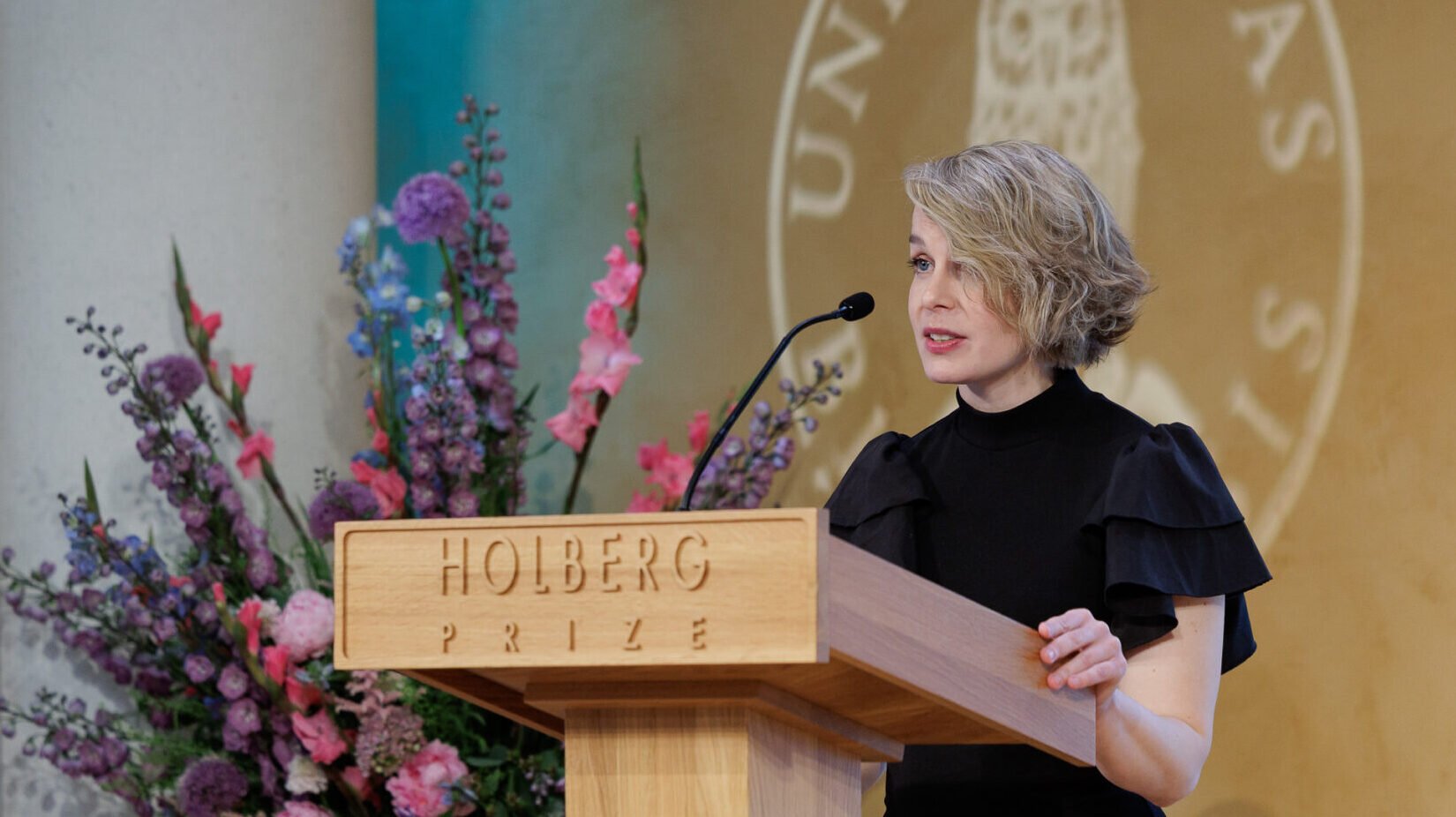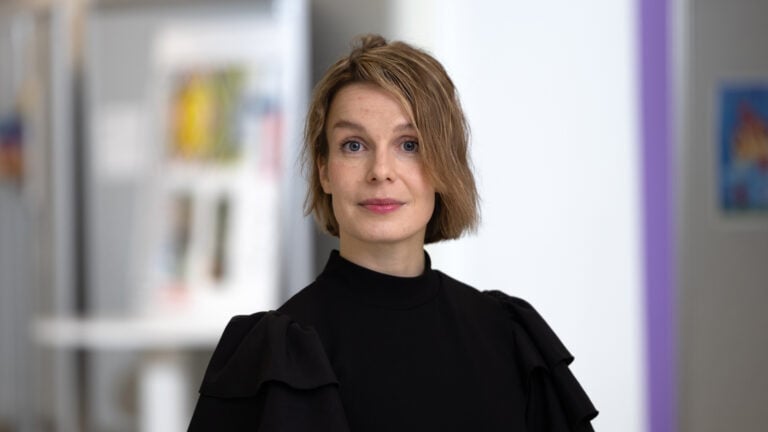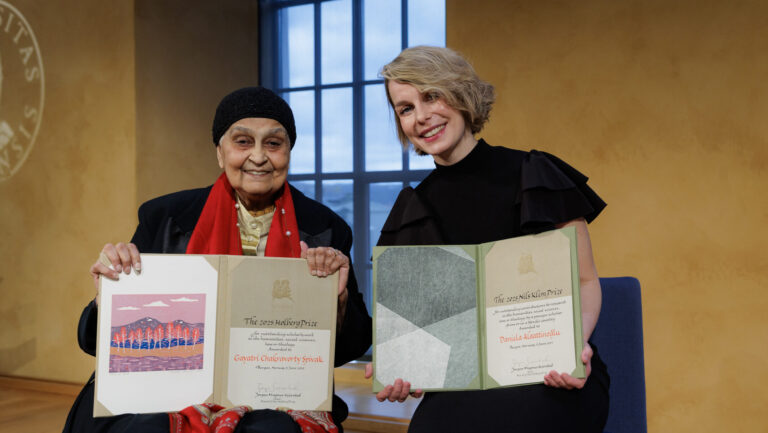
On 5th June, 2025, the Nils Klim Prize was conferred upon Daniela Alaattinoğlu. Her acceptance speech is published here in full.
Your Royal Highness Crown Prince Haakon, Minister of Research and Higher Education Sigrun Aasland, Your Excellencies, Mayor Marit Warncke, Madam Rector Margareth Hagen, Holberg Prize Laureate Gayatri Chakravorty Spivak, esteemed members of the Nils Klim Committee and the Holberg Board, family, friends and colleagues!
I am extremely grateful and honoured to join the ranks of the Nils Klim Laureates today. As a lawyer, through the Nils Klim and Holberg Prizes platform, I would like to emphasise the importance of keeping the law engaged with questions of equality and social justice.
I receive this prize at a time of turmoil. Globally, it has never been clearer that the countries and leaders who make up the rules are the ones who also most blatantly break and redefine them to serve their own interests. One manifestation of this is seen in the international community’s debates over whether the egregious and dehumanising attacks on Palestinians indeed constitute genocide under international law—discussions which, once again, call into question the relationship between international law and international justice.
This is also a time of attacks on human rights, gender and sexuality studies, as well as on efforts to promote diversity and inclusion. Paired with growing hostility toward the idea that biology is not destiny, this not only threatens academic freedom—it also has very tangible consequences. By using the law to block access to gender-affirming and reproductive health care, or to restrict other fundamental rights, it makes life more unlivable for many.
When I was a law student, one of the first things I learned was how to detect the legally relevant facts in a situation—and to dismiss the rest as legally irrelevant. This context-reducing exercise is central to legal work: determining how rules and principles apply to selected facts of reality. I struggled with this early on. Why was it, for example, so clearly legally relevant that the plaintiff in a case was of a certain age, but irrelevant that she had lived through a history of abuse?
Learning to separate the legally relevant from the irrelevant is part of the methodological training lawyers receive. It allows for the subsumption of reality under fixed legal categories. This is foundational in legal education—and understandably so, since few clients want to hear the answer ‘it’s complicated’ too often.
Yet, law students are less often asked to question the validity of the rules and principles themselves: whose interests they represent, in what context they were made and who decides what counts as relevant in the first place. Which people, perspectives and histories are left out?
Along my academic and personal journey—which has taken me across continents, countries, languages and cultures, and resembles the adventures of Nils Klim in more ways than one—I have been lucky to find others who shared my initial discomfort with law as a supposedly complexity-reducing exercise.
In my research, I aim to draw on both insider and outsider perspectives to understand law and its workings: not just asking what the prevailing legal rules and principles are, but also how they have come to be, how nation state-made law is used to include and exclude, how individuals and groups engage with the law and mobilise to change it, what makes public institutions respond to such mobilisation—and whether people actually access the rights they have been promised by the legal system.
Ultimately, for me, it is also about asking how law might become more equal and just.
I am endlessly grateful to the mentors, colleagues, students, funders, institutions, human rights defenders and civil society organisations from whom I have had the chance to learn, who have supported and engaged with my work thus far – and continue to do so. Finally, thank you to my friends and family, my partner Özgür and my children Aras and Vilde, for reminding me of the good things in life.
Last edited:
Published:
Related content

Daniela Alaattinoğlu
The 2025 Nils Klim Prize is awarded to the Finnish jurist Daniela Alaattinoğlu.

The 2025 Holberg Prize and the Nils Klim Prize Conferred
Today, HRH Crown Prince Haakon of Norway conferred the Holberg Prize upon Indian Professor Gayatri Chakravorty Spivak.

Award Ceremony for the Holberg Prize and the Nils Klim Prize, 2025
The official Award Ceremony for the Holberg Prize and the Nils Klim Prize.

